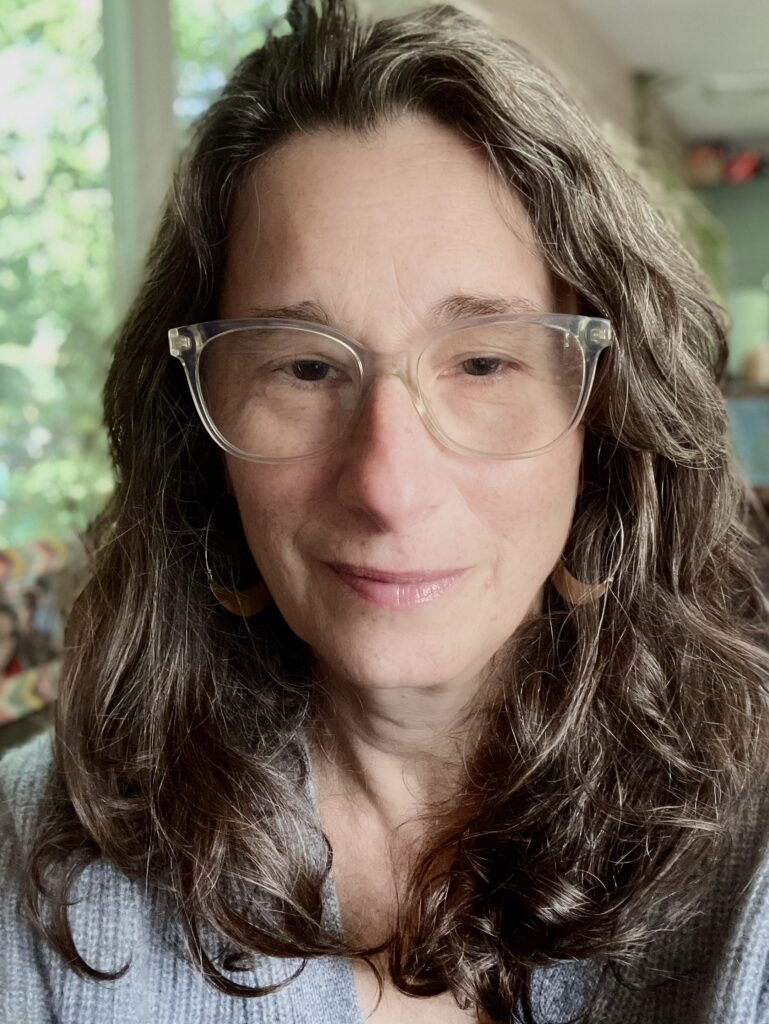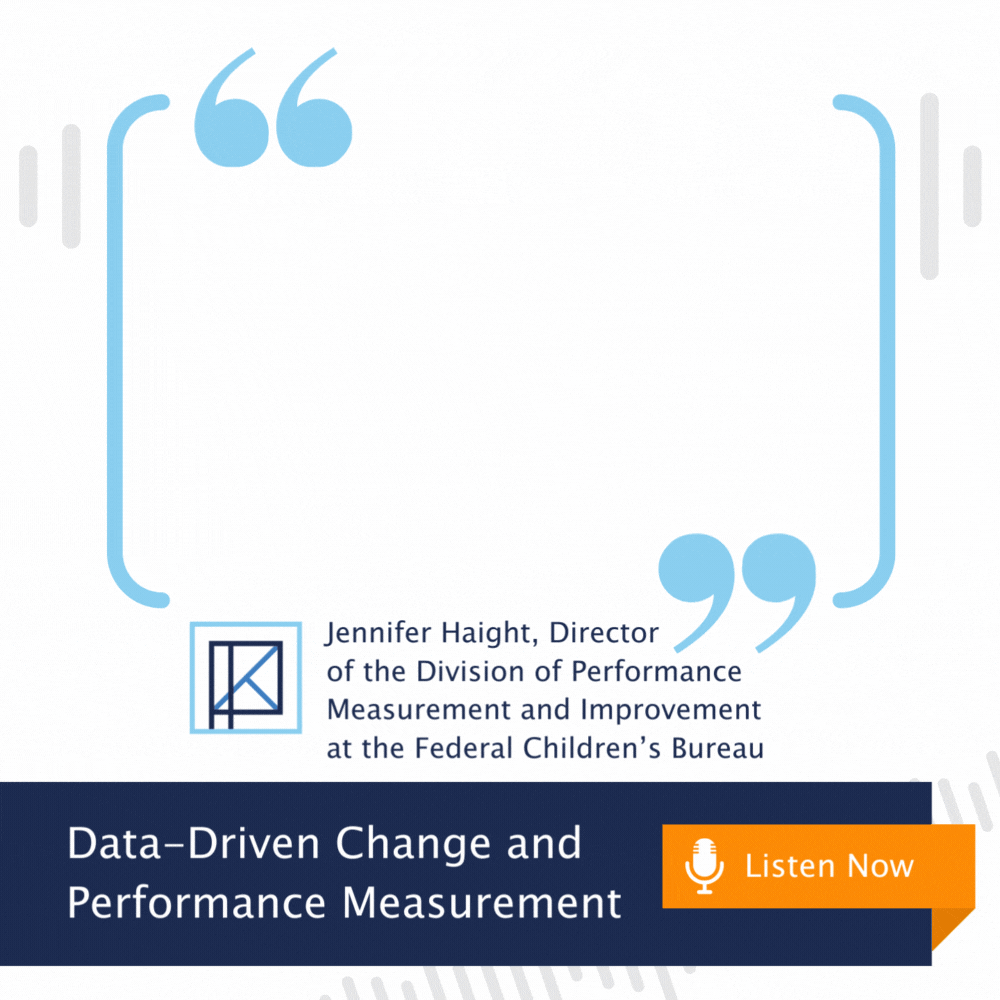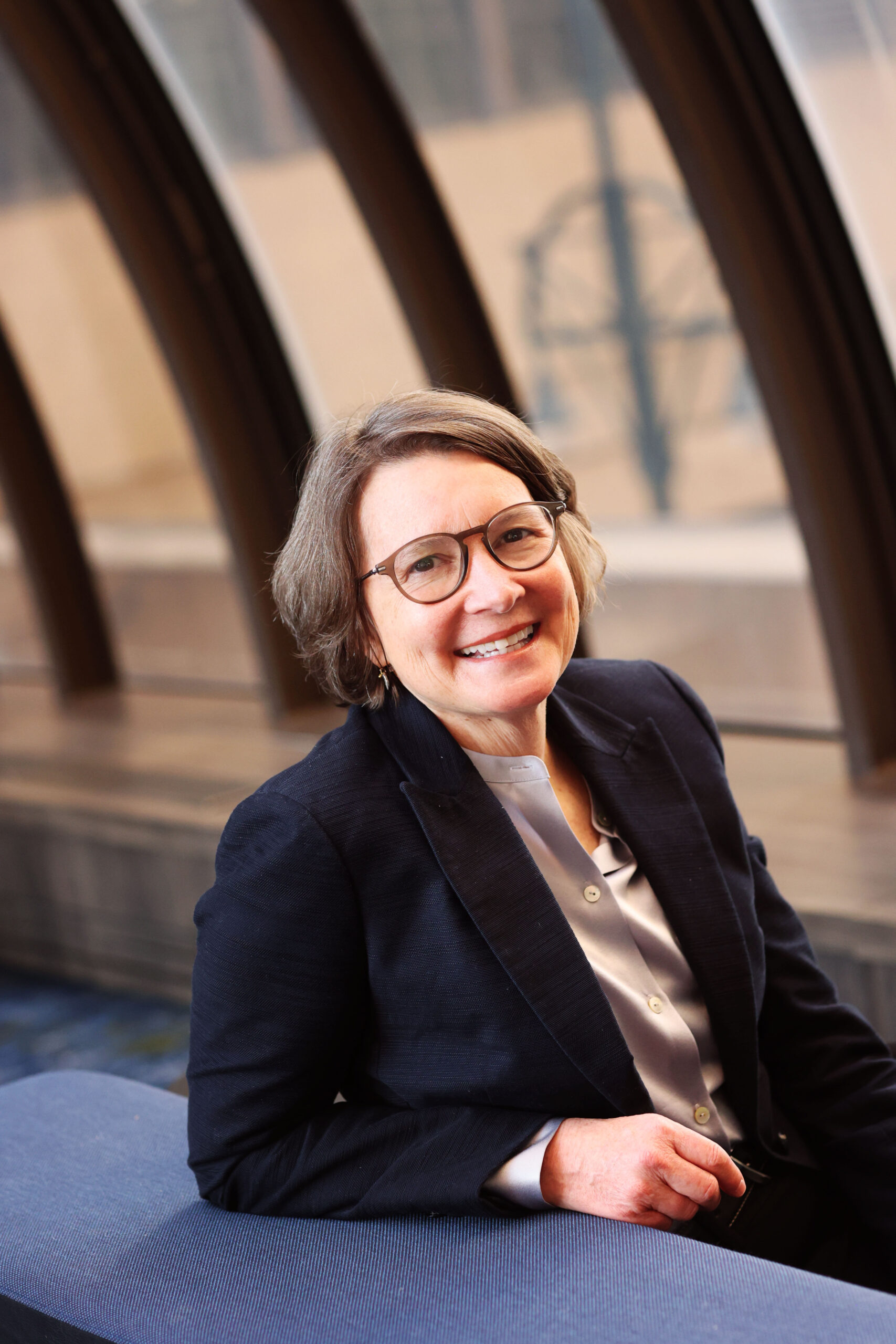Stacey is joined by guests Jennifer Haight and Elizabeth Black. Together, they explore using data to enhance outcomes within child welfare systems. They focus on clear and respectful communication when presenting data and highlight the importance of considering different stakeholder interpretations and insights. This collaborative approach ensures that the data is understood and used correctly.
Data is not always self-evident and self-explanatory.
Jennifer shares how difficult it can be to ask the right questions. She explains that many people first struggle to figure out precisely what they want to know when combing through mounds of data. Through discussion, these questions can be refined into analytic ones. This process is crucial for generating actionable knowledge and producing evidence to drive improvements in child welfare practices.
Understanding the people you work with is invaluable in addition to uncovering the right questions. Child welfare leaders manage extensive responsibilities, including oversight from multiple levels of government. Elizabeth emphasizes the importance of knowing these leaders’ values and priorities. Creating spaces for these early conversations makes aligning leadership intentions with impactful outcomes possible.
Curiosity and the Proper Use of Data
When we seek to understand something, we should gather and produce information carefully and meaningfully. Then, we can use this information to identify problems, propose solutions, and measure the effects of these solutions over time. Well-produced knowledge is essential for making decisions.
Listen to the episode to learn how curiosity, realistic goal-setting, and careful data use can drive meaningful change.
SoundCloud | Spotify | Apple Podcasts | YouTube
Meet Our Guests
Jennifer Haight, Director of Division of Performance Measurement and Improvement, Federal Children’s Bureau

Jennifer Haight is the Director of the Division of Performance Measurement and Improvement at the Federal Children’s Bureau housed in ACF within HHS. In that role, she oversees the Child and Family Services Review Team, and the Data Analytics and Reporting Team. The Division is responsible for conducting the Child and Family Services reviews, as well as data collection, analysis, and reporting of state-level data reported to the Children’s Bureau (CB) through mandated data collection. Prior to joining CB, Jennifer spent 19 years at Chapin Hall at the University of Chicago where she worked as Policy Fellow and as a senior staff member at the Center for State Child Welfare Data. Jennifer started her policy career as a senior budget examiner for the New York Budget Division, where she was responsible for developing, implementing, and monitoring the New York State Corrections Budget.
Elizabeth Black, Regional Vice President at Public Knowledge®
Since 2021, Elizabeth has been the Regional Vice President at Public Knowledge®. Her work for 30 years has concentrated on leadership and management, public policy, practical approaches to change and implementation, and social justice in child welfare. Elizabeth has focused on ensuring that children are safely and permanently cared for within their own families and communities throughout her career.
Additionally, she is the Vice Chair of the Board of Directors for Alia, a Minnesota-based non-profit that aims to inspire national change within child welfare. Previously, she was the Executive Director of the Office of Child Permanency at the Tennessee Department of Children’s Services (DCS) in Nashville. She was also part of the federally funded Permanency Innovations Initiative Training and Technical Assistance Team (PII-TTAP).
About the Podcast
Launched in 2023, the Igniting Impact Podcast highlights our client’s and partner’s important work. We hope that this podcast drives impactful conversations that foster connections and progress in the field. One of our core values at Public Knowledge® is Impact. We created this podcast around this fundamental principle because it is essential to our work. Impact to us means, “We approach every engagement with our energy focused on identifying the right goals, outcomes, and strategies. And we each have a personal responsibility to make a positive impact on our projects and our world.”

